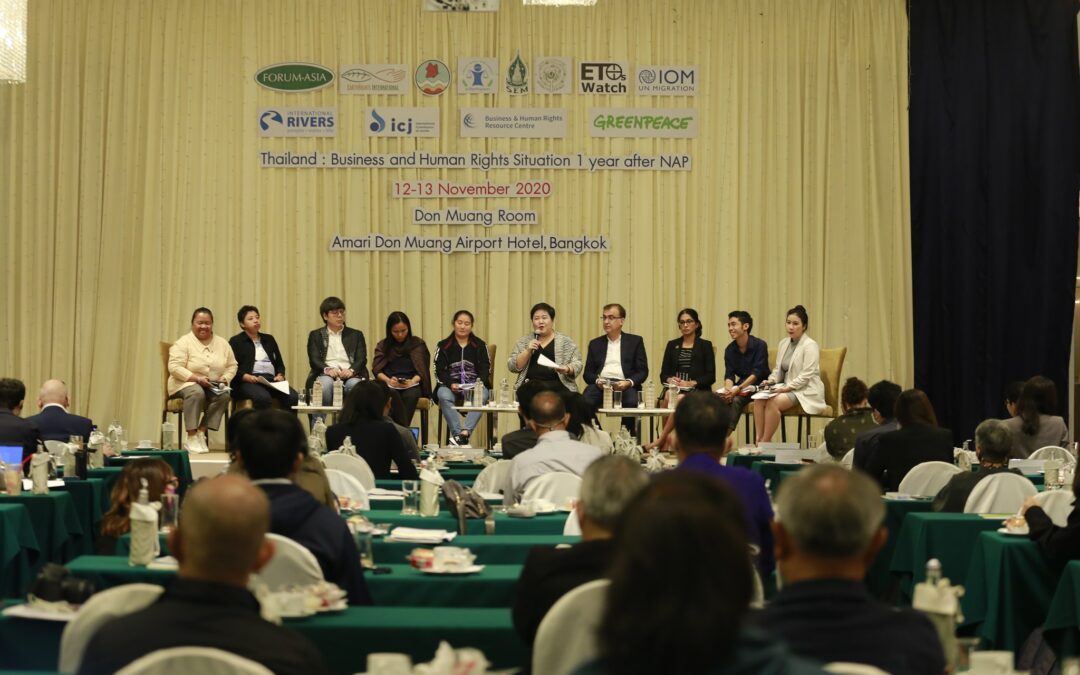
Nov 14, 2020 | Advocacy, News
On 12-13 November 2020, the ICJ co-hosted a discussion on “Thailand’s National Action Plan on Business and Human Rights: 1-Year Progress Review” in Bangkok. The forum was co-organized with other 11 organizations.
Participants on the first day included some 95 individuals representing populations affected by business operations from all regions of Thailand and members of civil society organizations. The considered reviewed the progress that has been made by Thailand over the past year towards fulfilling its commitments in the four priority issues in its First National Action Plan on Business and Human Rights (NAP): (1) Labor; (2) Land, environment and natural resources; (3) Human rights defenders; and (4) Cross border investment and multi-national enterprises.
Several participants noted a lack of any evident and tangible progress in the NAP implementation and questioned the effectiveness of the NAP because it does not have the status of a law but is merely a resolution from the Council of Ministers. They further expressed concern at the lack of a comprehensive monitoring system in place to monitor NAP and its achievement according to the key recommendations aligned with the UN Guiding Principle on Business and Human Rights, and on legal harassment and intimidation faced by human rights defenders.
In the session regarding cross border investment and multi-national enterprises, the ICJ participants led the discussion regarding challenges to hold Thai companies accountable for human rights abuses which took place abroad. The participants looked into several obstacles to accessing to justice for victims of business-related human rights abuses in the context of cross-border investment. The discussion was based on the ICJ’s work and analysis in the draft report on the human rights legal framework of Thai companies operating in Southeast Asia, which is expected to be launched in December 2020.
Comments and recommendations raised by participants on the first day were presented to representatives from the Ministry of Justice, Thailand National Human Rights Commission, Global Compact Network Thailand and UN agencies, in the public seminar on the second day. The outcomes of the discussion and recommendations will also be submitted to the NAP Monitoring/Steering Committees, chaired by Director-General of Rights and Liberties Protection Department, Ministry of Justice.
Background
On 29 October 2019, the Cabinet approved and adopted the First National Action Plan on Business and Human Rights (2019-2022), making Thailand the first country in Asia to adopt the stand-alone NAP.
The NAP emphasizes the duties of State agencies to review and amend certain laws, regulations and orders that are not in compliance with human rights laws and standards and ensure their full implementation; ensure accessibility of mechanisms for redress and accountability for damage done to affected communities and individuals; overcome the barriers to meaningful participation of communities and key affected populations; and strengthen the role of businesses to “respect” human rights on a variety of key priority issues.
The event was co-hosted with:
- International Organization for Migration (IOM)
- Community Resource Centre Foundation (CRC)
- Asian Forum for Human Rights and Development (FORUM-ASIA)
- EarthRights International (ERI)
- The Mekong Butterfly (TMB)
- International River (IR)
- Spirit in Education Movement (SEM)
- Thai Extra-Territorial Obligations Working Group (Thai ETOs Watch)
- Green Peace Thailand
- Green South Foundation
- Business and Human Rights Resource Center (BHRRC)
Further reading
Thailand’s Legal Frameworks on Corporate Accountability for Outbound Investments
Thailand: ICJ co-hosts discussion on National Action Plan on Business and Human Rights
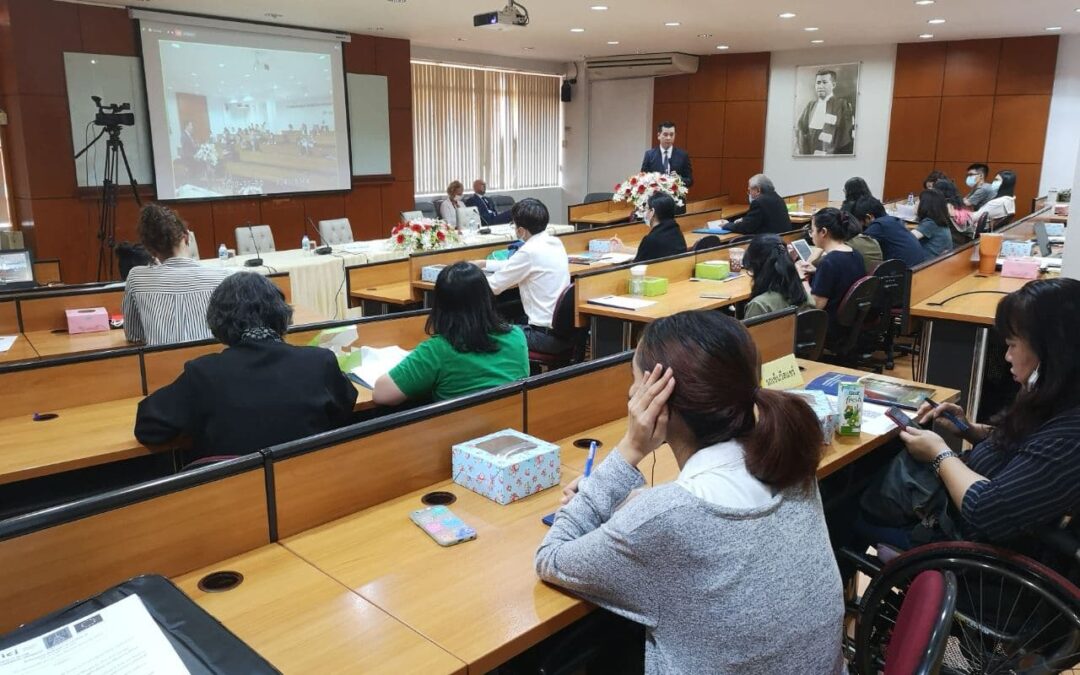
Nov 11, 2020 | Advocacy, News
The ICJ, human rights advocates and other experts emphasized the State obligation to protect that right to health of all persons without discrimination at a public seminar held on 10 November 2020.
The ICJ sponsored the event on “Human Rights, Right to Health, and the Coronavirus Disease (COVID-19) Pandemic” in collaboration with the Delegation of the European Union to Thailand, Thammasat University’s Faculty of Law, and the Ministry of Justice’s Department of Rights and Liberties Protection Department.
Participants in the event included interested members of the public, students, human rights academics, and members of civil society organizations.
Welcome remarks were delivered by Giuseppe Busini, Deputy Head of the European Union Delegation to Thailand and Professor Jaturon Tirawat, Director of Thammasat University’s Public International Law Centre.
Dr. Seree Nonthasoot, Member of the UN Committee on Economic, Social and Cultural Rights in an opening address recalled the obligations of Thailand under International Covenant on Economic, Social and Cultural Rights to protect the right of everyone to the enjoyment of the highest attainable standard of physical and mental health. This includes ensuring the right of access to health facilities, goods and services on a non-discriminatory basis. Among these elements are access to housing and sanitation, potable water and essential drugs. He also highlighted the need to implement a national public health strategy and plan of action to make COVID-19 vaccine a global common good.
ICJ Legal Adviser Timothy Fish Hodgson provided a briefing about human rights effects wrought by the COVID-19 pandemic, as exposed in the ICJ report – Living Like People Who Die Slowly: The Need for Right to Health Compliant COVID-19 Responses. He emphasized the particularly acute and discriminatory impact of the pandemic on already marginalized people around the world, particularly on non-citizens, older persons, women and girls, LGBT persons, persons deprived of their liberty, persons with disabilities, sex workers and healthcare workers.
A panel discussion regarding the economic social and cultural rights during and post COVID-19 pandemic, moderated by Chonlathan Supphaiboonlerd, Associate National Legal Advisor of the ICJ, addressed the measures taken by the Thai government to control the spread of COVID-19 and to mitigate social and economic impacts of the pandemic, especially their human rights effects on persons with disabilities, refugees, asylum seekers, persons deprived of their liberty, indigenous peoples and migrant workers in Thailand.
The panel included Nareeluc Paichaiyapoom, Director of International Human Rights Law Division, Department of Rights and Liberties Protection, Ministry of Justice; Dr. Lalin Kovudhikulrungsri, Faculty of Law, Thammasart University; Naiyana Thanawattho, Executive Director, Asylum Access Thailand; Dr. Siwanoot Soitong, Bangkok Legal Clinic, Faculty of Law, Thammasat University; Nattaya Petcharat, Stella Maris Seafarer’ Center Songkhla; and Suebsakun Kidnukorn, Researcher, Area Based-Social Innovation Research Center (Ab-SIRC), Mae Fah Luang University.
Watch the recording of the seminar here.
Further reading
Thailand: The ICJ and other human rights groups make supplementary submission to the UN Human Rights Committee
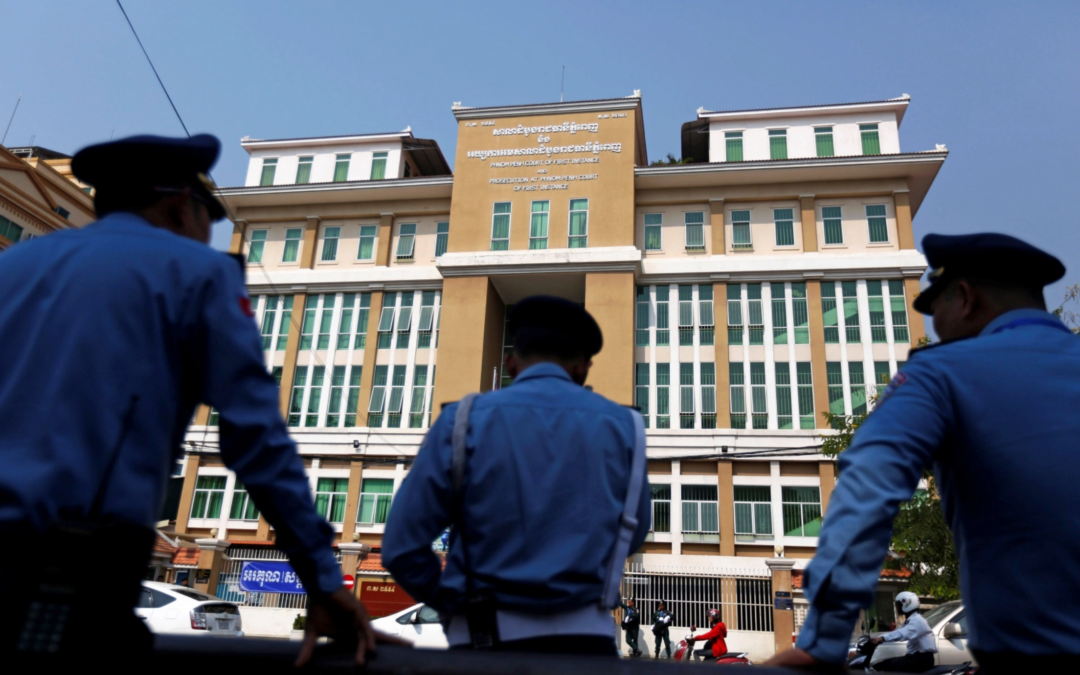
Nov 2, 2020 | News
Today, the ICJ and 56 civil society organizations called for an end to attacks on independent media by the Royal Government of Cambodia (“RGC”).
Amidst an increasingly repressive landscape, the organizations called on the RGC to:
- End harassment of journalists and media outlets;
- Immediately drop apparently politically motivated charges against journalists and unconditionally release those held in detention for exercising their rights to freedom of expression and information;
- Repeal or significantly amend repressive laws that unjustifiably impede media freedom and freedom of expression, including media freedom, so as to allow for a vibrant and free media landscape in line with its international human rights obligations;
- Immediately reverse revocations of media licenses to facilitate media freedom and the right to freedom of expression and information; and refrain from similar revocations of media licenses in the future.
Download the joint statement in English and Khmer.
Contact
Kingsley Abbott, Senior Legal Adviser, ICJ Global Accountability Initiative e: kingsley.abbott(a)icj.org
See also
ICJ, ‘Cambodia: authorities must end increasing crackdown on human rights defenders’, 11 September 2020
ICJ, ‘Cambodia: ICJ and 64 organizations call for immediate withdrawal of Draft Law on Public Order’, 13 August 2020
ICJ, ‘ICJ and 31 organizations jointly urge Governments to call for respect of human rights in Cambodia’, 22 July 2020
ICJ, ‘Cambodia: State of Emergency bill violates the rule of law’, 8 April 2020
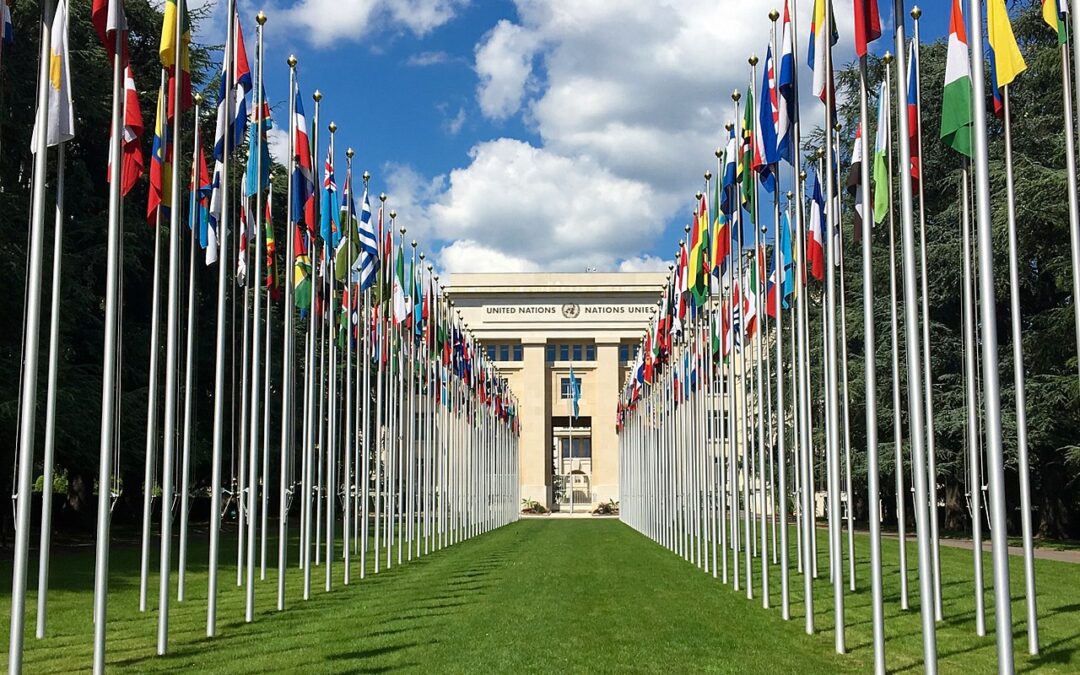
Oct 13, 2020 | Advocacy, News, Non-legal submissions
On 12 October 2020, the ICJ made a submission to the Human Rights Council’s Working Group on the Universal Periodic Review in advance of the Human Rights Council’s review of Singapore in May 2021.
In its submission, the ICJ expressed concern about the following issues:
(i) Freedom of expression online;
(ii) The death penalty;
(iii) Corporal punishment; and
(iv) International human rights instruments.
The ICJ further called upon the Human Rights Council and the Working Group on the Universal Periodic Review to recommend that Singapore ensure, in law and in practice, the right to freedom of expression online, the right to life and the absolute prohibition against cruel, inhuman or degrading treatment or punishment; and become a party to core international human rights instruments, including the International Covenant on Economic, Social and Cultural Rights, the International Covenant on Civil and Political Rights, the Convention Against Torture and Other Cruel, Inhuman or Degrading Treatment or Punishment, the International Convention on the Protection of the Rights of All Migrant Workers and Members of Their Families and the International Convention for the Protection of All Persons from Enforced Disappearance, as well as the existing Optional Protocols to some of these treaties.
The submission is available in PDF here.
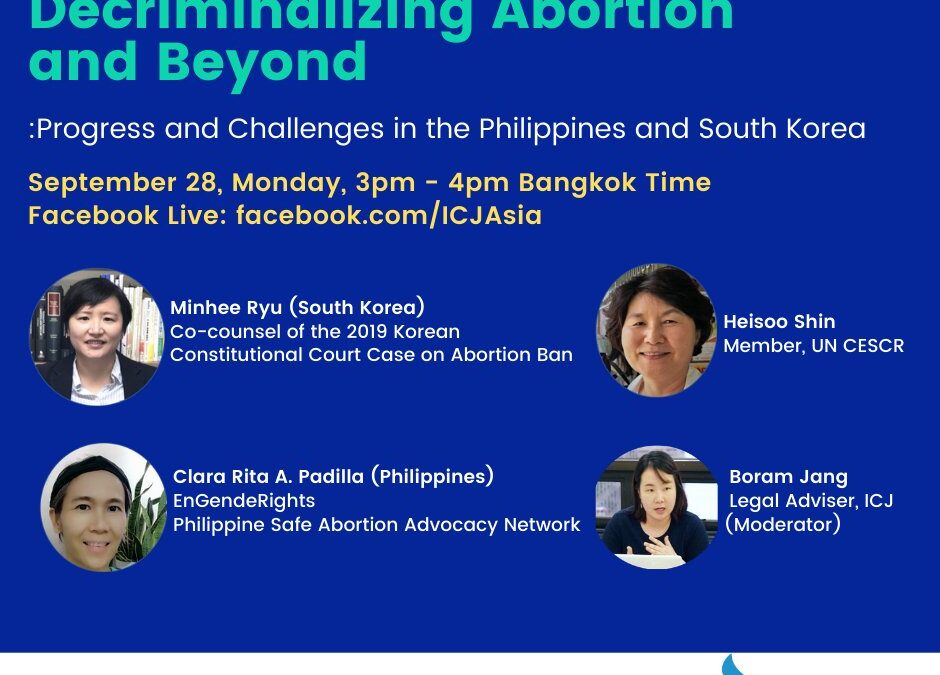
Sep 29, 2020 | Advocacy, News
On the International Safe Abortion Day, the ICJ held a webinar on the decriminalization of abortion in the Philippines and the Republic of Korea.
The webinar focused on the legal provisions criminalizing abortion and on women human rights defenders’ struggle to decriminalize abortion in the Philippines and in the Republic of Korea. In addition, the participants highlighted States’ legal obligation to guarantee access to legal, safe and affordable abortion and post abortion care for all persons under international human rights law and standards.
Ms. Clara Rita A. Padilla from the Philippines’ Safe Abortion Advocacy Network; Ms. Minhee Ryu, Co-counsel in the 2019 Korean Constitutional Court case on the country’s criminal ban on abortion; and Dr. Heisoo Shin, member of the UN Committee on Economic, Social and Cultural Rights (CESCR) participated as speakers.
“The law imposing penalties on women who have an abortion and those assisting them only endangered the lives of women forced to seek unsafe abortion,” said Ms. Padilla. “Today, the Philippine Safe Abortion Advocacy Network introduced a draft bill, An Act Decriminalizing Induced Abortion to Save the Lives of Women, Girls, and Persons of Diverse Gender Identities, and we will continue advocating the repeal of the current discriminatory law against women and eliminate harmful stigma against women due to the restrictive abortion law and imposition of judgmental religious beliefs.”
Ms. Minhee Ryu talked about the women human rights defender’s movement in the Republic of Korea, including the work of the Joint Action for Reproductive Justice. She also highlighted the legal strategy to draw the Constitutional Court’s attention to the experience of girls, migrant women and women with disabilities in the context of the case that resulted in the Court holding that the criminalization of abortion was unconstitutional in April 2019.
“It is the core obligations of States to ensure the repeal of laws, policies and practices that criminalize, obstruct or undermine access by individuals or a particular group to sexual and reproductive health facilities and services,” said Dr. Heisoo Shin. “Denial of abortion often leads to maternal mortality and morbidity, which, in turn, constitute violations of the rights to life, dignity, autonomy, security, equality and non-discrimination, equality before the law and equal protection of the law without discrimination, privacy, physical and mental health, and the right to freedom from ill-treatment.”
The participants agreed that international human rights law and standards, such as the Human Rights Committee’s General Comment 36 on the right to life, and the CESCR’s General Comment 22 on the right to sexual and reproductive health, are instrumental in worldwide efforts to ensure access to legal, safe and affordable abortion and in advocating for its complete decriminalization.
Contact
Boram Jang, International Legal Adviser, e: boram.jang(a)icj.org
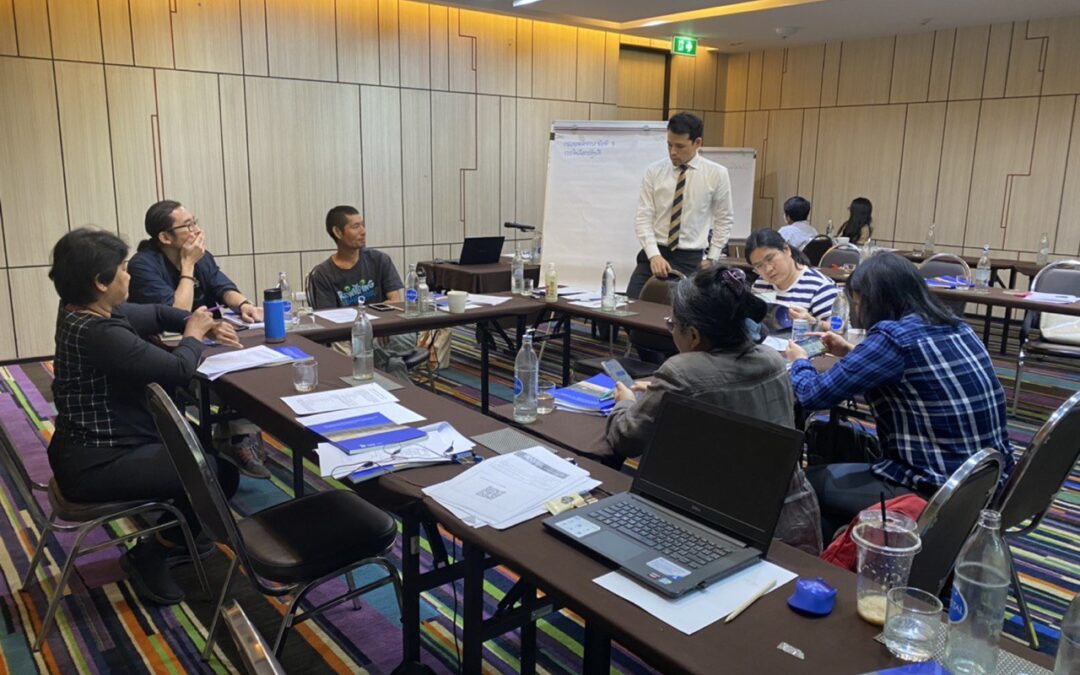
Sep 14, 2020 | Advocacy, News
On 13 September 2020 the ICJ hosted a workshop on the impacts on economic, social and cultural rights associated with the development of Special Economic Zones (SEZs) in Thailand. Lawyers, members of civil society organizations and academics from across Thailand attended the Workshop.
The event began with an introduction to ICJ’s report – the Human Rights Consequences of the Eastern Economic Corridor and Special Economic Zones in Thailand – and outlined the deficiencies in the legal and regulatory framework governing economic development in Special Economic Zones and the Eastern Economic Corridor.
During the group discussions, participants were introduced to the international laws and standards that are applicable in the context of Thailand and can be applied to allegations of human rights violations and negative environmental impacts. They were urged to use these standards for their advocacy work.
These included economic, social and cultural rights contained in the International Covenant on Economic, Social and Cultural Rights (ICESCR), to which Thailand is a State party and other internationally recognized principles, including:
- Right to an adequate standard of living and housing under article 11 of the ICESCR, General Comments 4 and 7 of the Committee on Economic Social and Cultural Rights and the Basic Principles and Guidelines on Development-Based Evictions and Displacement – which stress the need to provide adequate legal protection from forced eviction, due process, alternative accommodation, and access to an effective remedy of those that are affected by eviction orders;
- Human rights obligations that are exercised in relation to the environment, such as obligation to facilitate public participation in decision making related to the environment, and duties to protect human rights defenders and to conduct the prior assessment of the possible environmental impacts of proposed projects and policies; and
- Rights to and at work under article 6 to 8 of the ICESCR, General Comment No. 19 and 23 of the Committee on the Economic, Social and Cultural Rights, and several ILO Conventions, particularly regarding rights abuses suffered by migrant, seasonal and subcontracted workers, as well as restrictions on freedom to join and form trade unions.
At the conclusion of the Workshop, participants exchanged views on strategies and collaboration for action to mitigate potential impacts of the Special Economic Zones and the Eastern Economic Corridor and to advance the protection of economic, social and cultural rights.
Further reading
Thailand: laws governing development of Eastern Economic Corridor and Special Economic Zones fail to adequately protect human rights – ICJ report
Thailand: ICJ hosts discussion on human rights consequences of Special Investment Zones
ICJ and Chiang Mai University discuss Special Economic Zones in Myanmar and Thailand










